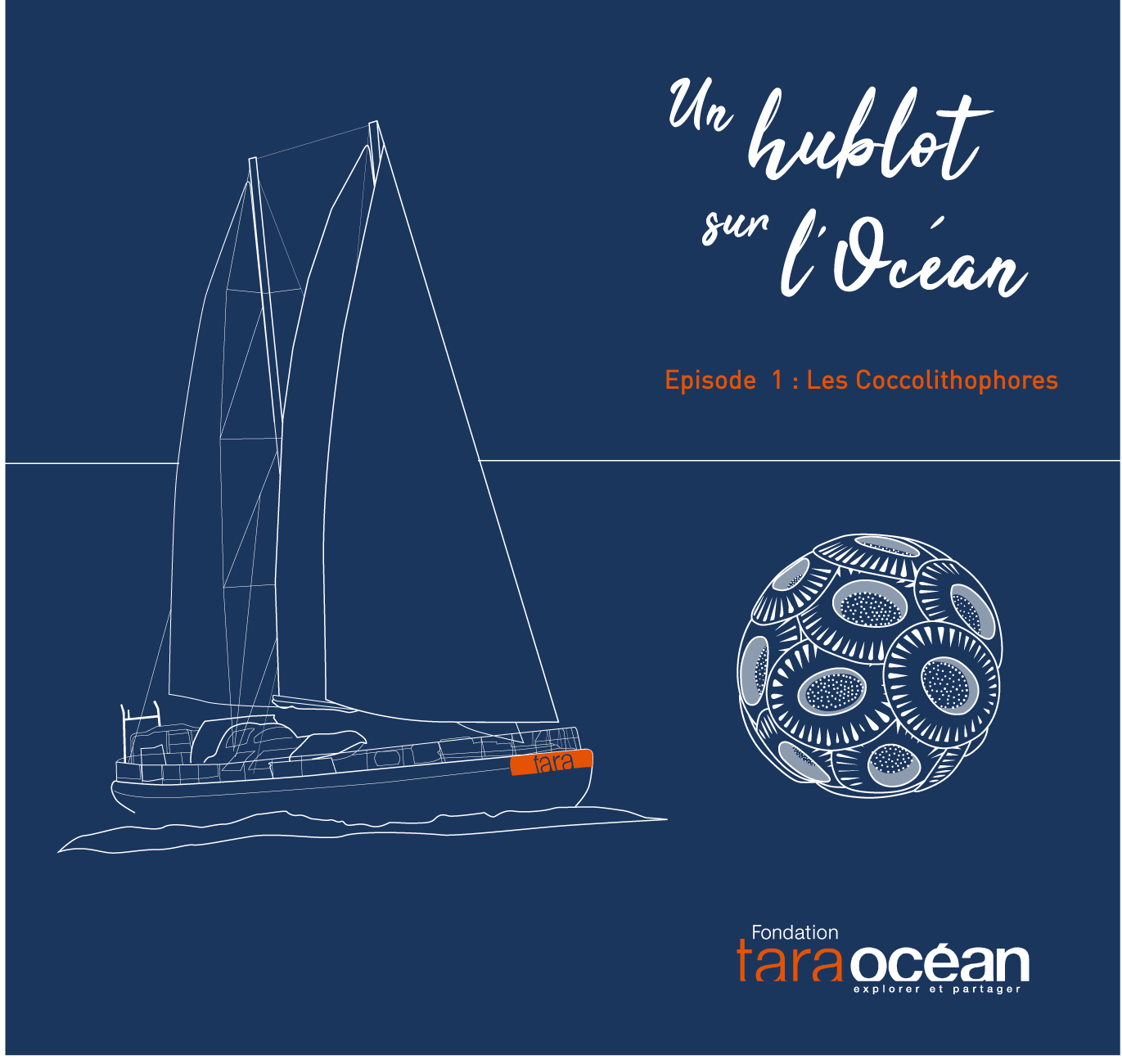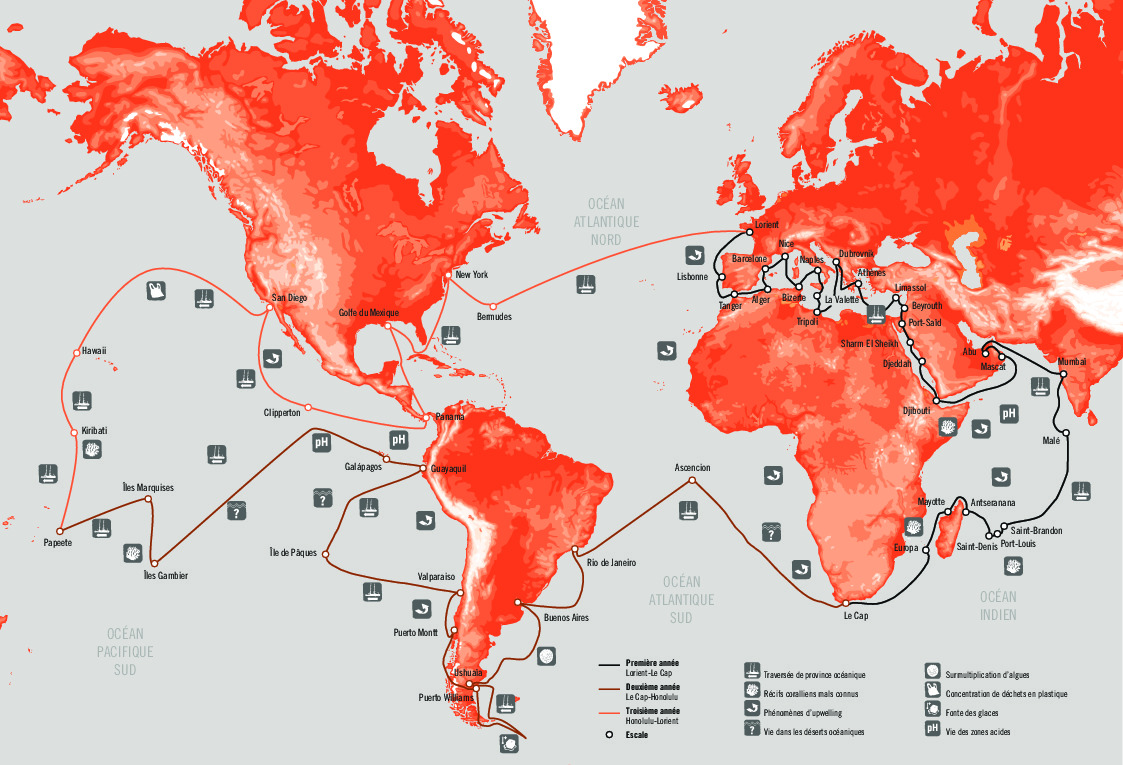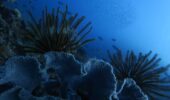
A porthole on the ocean – episode 1: Coccolithophores
Climb aboard the schooner Tara and discover the secret world of coccolithophores What are coccolithophores? What do they look like? Why are they so important for us?
Support our mission
Make a donationAn expedition to the heart of the biodiversity of the world of plankton, the ocean under the microscope.
In brief
An odyssey worthy of the great global expeditions of the 19th century in search of life, like Charles Darwin, but with the technology of the 21st century: that of DNA and the microscope.
Undoubtedly one of Tara’s major expeditions which, for nearly four years, has made it possible to unite different laboratories and scientific specialities around an ambitious project to conclude in a blaze of glory of scientific discoveries. This time, the schooner set out to sail nearly all the seas on the planet to study plankton, the microscopic organisms that drift in the ocean. Nearly 35,000 samples of viruses, algae and plankton were collected and analysed. It was the biggest genetic sequencing task ever undertaken on marine organisms, bringing to light a majority of microbial genes that were hitherto unknown. This colossal and fascinating undertaking received unprecedented recognition with the publication in May 2015 of five articles in the prestigious journal Science. A giant step in the knowledge of the invisible marine world.

What is the extent of invisible marine biodiversity?
How is this ecosystem organised?
Is it sensitive to global changes brought about by human activity?
Is it worth protecting tomorrow?
A new world
The miraculous fishing for plankton at a depth of up to 1,000 metres in more than 200 places on our ocean planet revealed the unknown: we have multiplied by more than 100 the types of known marine virus DNA, discovered more than 100,000 species of single-celled microalgae and revealed more than 150 million genes.
Worldwide plastic pollution
In the nets with extremely fine mesh, we also collected tiny pieces of plastic, from Antarctica to the Arctiic, everywhere. We’re talking about microplastics, mostly polypropylene or polyethylene, present on the surface of the ocean just about everywhere, at varying concentrations. We were all disgusted by this discovery in 2010.
Temperature – a determining factor
One of the first discoveries, revealed in the journal Science in 2015, proved the importance of temperature for this microscopic biodiversity. The structure of the bacterial ecosystem, responsible for many vital services such as the recycling of organic materials, depends on a temperature of around 0.1 °C. Evidence to support the central importance of the Paris Agreement, and above all of respecting it today.
News



